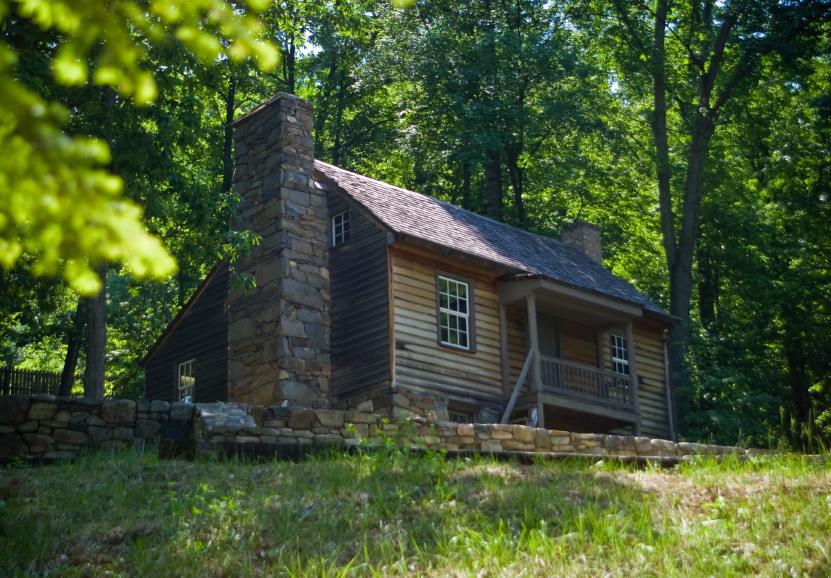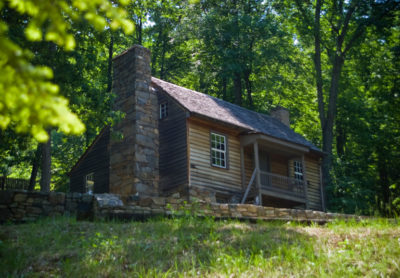It all started back in fourth grade on the fateful day that I picked up the book My Side of the Mountain (1959) written by Jean Craighead George. It is a book about Sam Gribley, a 12-year-old-boy who runs away from the city to live on his great grandfather’s abandoned homestead in the Catskill Mountains. He took with him a flint and steel, an axe, a ball of string and a knife. With these few things he survived, even thrived in the wilderness.
Even when I first read the book I was aware that fiction in books didn’t necessarily reflect how things happen in real life. I nevertheless was hooked on the idea of just heading off into the wilderness for good. Later, I heard it called “dropping out,” as in dropping out of society, and I thought it sounded mighty nice.
Everyone has a different idea of what dropping out would be like for them. Plus, everyone has a different set of variables when planning on how they would go about it. I will try to offer up some insight or questions that need to be answered before you strap on that pack and head for the hills.
Shelter
So where are you planning to sleep? Not many people will be able to find a hollow tree big enough to lie down in like Sam did. Are you planning on staying in one area, or would you like to be mobile and migrate?
If you are able to purchase remote land, a log cabin is your ticket. If you want to be mobile, a string of them like North Country trappers use might fit the bill.
New Relocation Manual Helps Average Americans Get Out Of Harms Way Before The Coming Crisis
A “dugout” was used by a lot of mountain men in the Rockies. A dugout is made by selecting a sheltered hillside and digging into it. You clear out a hole the size you would like your cabin, shore up the sides, build a front wall and add a roof. These can be very warm in areas with harsh winters.
A wigwam or wickiup can be built by one person with only moderate effort. These are less permanent structures than cabins, but with care can be made just as comfortable. If you are used to more space you can make an eastern longhouse. You can even turn a debris hut into a semi-permanent residence with a little thought and care in your building.
More mobile structures such as teepees, yurts and tents require a bit of effort to transport. If you are alone in your pursuit, it might be quite an undertaking to pack up and move camp if you are relying on one of these for your shelter.
Backpacking tents can be used short term, but are not a long-term solution since the material will decay over time with exposure to the sun. That said, I still on occasion use a tent that is well over 30 years old. It is not quite waterproof anymore, and it has broken zippers and poles. But in a pinch it will keep me mostly dry, but not on an everyday basis.
If you are going to be as mobile as possible, learn to build quick and efficient lean-tos and debris huts for your overnight shelter.
Water
It should go without saying, but make sure the area you pick has a year-round potable water supply. A spring is nice; just make sure it doesn’t dry up in the summer. I prefer a little bigger water that has fish and other critters to help out with the food supply.
Food
You have decided on shelter near drinking water. Now, can you feed yourself? Have you picked an area with ample food that you will eat? Sure you CAN eat those plants and they will keep you alive, but WILL you?
Have you become an expert (yes, an expert; your life depends on it) on the edible plant life in your area?
If there is abundant flora and fauna in the area when you check it out, will there be plenty in the winter also? How about after you have hunted it for a year? Is there enough of a population of squirrels for you to kill one every two days on a continuing basis?
How about gardening? Will you plant a garden in your wilderness setting? Do you have a place that gets enough sunlight (hard to do in the woods)? How will you keep the critters from eating all the food you grow?
How will you preserve food for the winter? Will you be able to create a secure place to store it free from pests and rot?
Are you going to live close enough to a town where you can come in and do some dumpster diving from time to time? If you are within walking distance of a town, it may be well worth your while to check out the back of grocery stores for extra food to get you through.
Sanitation/Heath/Medical
Another thing to keep in mind will be how to keep yourself clean and healthy. Dealing with your waste so it doesn’t contaminate your food or water supply is very important.
There was a hippy commune started in the Rockies during the late 60s. Everything went well until dysentery swept through the colony. They were using open latrines without thought of proper waste disposal. They soon abandoned their efforts.
Do you have a medical condition that needs medication or monitoring? I admit much of what ails modern man could easily be cured by several months of clean air, food and water along with the plentitude of exercise that comes from living off the land. But some will need to treat certain conditions. Can you make an herbal remedy work for what ails you? Is there enough of that herbal remedy to sustain you throughout the year without depleting your supply?
Do you know enough about herbs to be able to diagnose and prepare a remedy for a new condition? Can you balance your diet well enough to prevent scurvy or some other form of malnutrition?
Community
Many who want to drop out cite their desire to return to the ways of the Native Americans. What they forget is that Native Americans lived in community with each other.
The most important point of community is the shared knowledge and skills it offers. A member of a community does not have to know all the medicinal herbs available in the area and what they treat; the healer does those things. The member doesn’t have to be able to make the best bow, or arrow, or arrowhead or even bowstring. He can specialize in something and trade his superior product for something else that he is not as good at making on his own.
Communities provide help in time of need. If you shoot a moose, how will you get it the six miles back to your camp without being molested by bears and wolves? Or what if you step wrong and twist your ankle? You are down for a week; how do you get your food?
Community allows us time for more than base survival that requires most of our effort just to stay breathing. Community allows us to express ourselves and grow as human beings. Community is something that all but the most hardcore antisocial person will find himself missing once the newness of the wilderness wears off.
Weapons/Tools
A popular question on firearm forums is the “one gun” question. It goes something like this: “If you had to pick one gun for your survival needs, what would it be”? This is usually followed by pages of arguments and counter-arguments of the various popular survival weapons.
Dropping out is kind of like that question. What you take with you is what you have to work with. You will need to consider how you with come up with ammo for your weapon. Again, you will have only what you take with you.
I envision my solution as a centerfire handgun with 100 rounds of ammo for defense. I plan on taking most game with a bow or traps of some sort. Mankind has come to rely on the firearm in the last 300 years. There was a long period of time where man did just fine with slings, bows, javelins and the like.
What kind of tools will you need? For woodwork? For cooking?
To Sam’s basic axe and knife, I would add a small fry pan and pot. You can cook a lot of things with wooden skewers. You can bake in leaves and on rocks, but a pot is what you really want for a good stew or soup.
Integrity
Many of the modern day survivalist dropouts you see in the media are criminals of one sort or another. They survive by breaking into cabins and stealing supplies in order to survive. Some are criminals running from the law; others become criminals because they need to steal in order to survive.
Eric Rudolph, who evaded capture for five years, lived off of stolen garden produce and grain, along with his dumpster diving. He even stole a truck at one point to transport his stolen grain. Claude Dallas’ fur trapping out of season is what led to a fatal confrontation with fish and game officers.
If dropping out means that you also drop your sense of morality in order to survive, you should rethink your plan.
Grit
When all else fails, do you have the grit to stick with it? I remember one of the many “survivalist expert” fugitives several years back taking to the woods. He was armed and supposedly not going to be easily caught. After a week of sleeping under the stars he turned himself in. It isn’t as easy or glamorous as it sounds.
I have come across camps in the Rockies where it looked like someone was trying out their luck at dropping out, always long abandoned. It takes a certain kind of person to make it alone.
As I said before, we all have a different idea of what dropping out would be like. Working out your own plan is half the fun. The other half is actually going out and learning the skills required. Practice what you learn and then if by choice or necessity you drop out, you will have some idea of what to expect. I am not trying to discourage anyone from following their dream; I am just asking the questions that need answers before you try.












